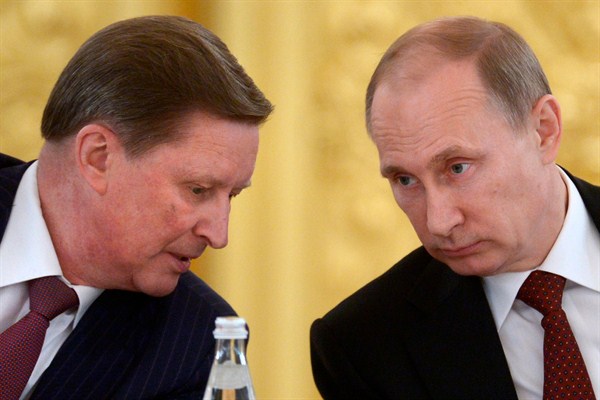The Moscow Kremlin, a UNESCO world heritage site, has been the seat of Russian tsars, commissars and presidents for the greater part of nine centuries. Its glittering palaces and churches, soaring towers and immense fortress walls have witnessed dramatic turning points in the history of Russia and the world. But if tourists now stream through daily to peruse ancient icons, Romanov family jewels and relics of martial glory, the Kremlin, in its political sense, remains an almost complete mystery to the outside world.
That is why Russian President Vladimir Putin’s dismissal last week of his chief of staff and longtime associate, Sergei Ivanov, who will accept a far lower-profile post as presidential environmental envoy, has provoked intense curiosity, market uncertainty and even speculation about Putin’s own imminent retirement. Neither Russian nor Western observers seem to know quite what to make of the move, so some weave elaborate theories about its connection with upcoming parliamentary elections, the ongoing—and recently escalating—conflict with Ukraine, or Putin’s longer-term ambitions to “reset” the Russian political system as a whole.
One theory is that a major realignment of Putin’s inner circle is now under way. With jobs, wages and investment still stagnating, parliamentary elections in September, and hints of public discontent over draconian new anti-terrorism laws, now might be a good time for Putin to seek scapegoats for these failures from among his top lieutenants—or to at least go through the motions of launching reforms. But neither of these things has occurred. Ivanov’s departure, like that of Vladimir Yakunin, a close Putin associate who stepped down as head of Russian Railways last year, has not been accompanied by smear campaigns or significant policy changes. In fact, both Ivanov and Yakunin have been praised for their service, settling into placeholder positions and appearing to preserve their direct access to Putin. Moreover, their replacements, drawn from the ranks, are seen as competent but unremarkable managers, hardly the sort to make sweeping reform-minded changes.

